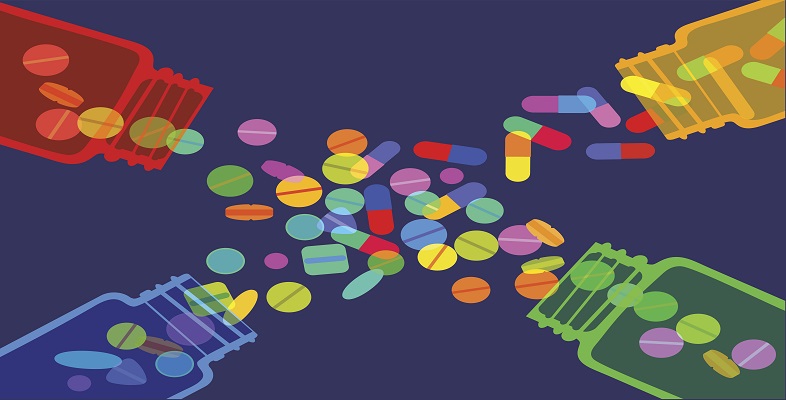Have you ever been prescribed a course of antibiotics by your doctor to treat a bacterial infection? Did you wonder how they worked? It’s likely that, provided you completed the course prescribed by your doctor, the antibiotics successfully treated your infection. But what if the bacteria causing your infection couldn’t be treated with antibiotics? This situation is faced by an increasing number of people and in the UK at least 5000 a year die from infections that can’t be treated with currently available antibiotics. But what makes bacteria resistant to infection, what is a ‘superbug’ and what are scientists doing about the problem?
This free badged course, Understanding antibiotic resistance, will introduce you to the science behind the problem of antibiotic resistance. You will learn about the history of antibiotics, what they are and how they work. You will learn how antibiotic resistance develops and spreads and look at the issues surrounding antibiotic resistance. Finally, you will look at some of the cutting edge ways that scientists are trying to tackle the problem of antibiotic resistance, from promoting good hygiene to developing new antibiotics from the soil.
Although this is an introductory course to antibiotic resistance, it assumes that you have a basic understanding of DNA and proteins. If you are unfamiliar with these concepts you might want to try our free OpenLearn course What do genes do? or listen to our set of audios at DNA, RNA and protein formation.

Enrolling on the course will give you the opportunity to earn an Open University digital badge. Badges are not accredited by The Open University but they're a great way to demonstrate your interest in the subject and commitment to your career, and to provide evidence of continuing professional development.
Once you are signed in, you can manage your digital badges online from My OpenLearn. In addition, you can download and print your OpenLearn statement of participation - which also displays your Open University badge.
The Open University would really appreciate a few minutes of your time to tell us about yourself and your expectations for the course before you begin, in our optional start-of-course survey. Once you complete the course we would also value your feedback and suggestions for future improvement, in our optional end-of-course survey. Participation will be completely confidential and we will not pass on your details to others.

This course is accredited by the CPD Standards Office. It can be used to provide evidence of continuing professional development and on successful completion of the course you will be awarded 24 CPD points. Evidence of your CPD achievement is provided on the free Statement of Participation awarded on completion.
Anyone wishing to provide evidence of their enrolment on this course is able to do so by sharing their Activity Record on their OpenLearn Profile, which is available before completion of the course and earning of the Statement of Participation.
Earn this free Open University digital badge if you complete this course! The badge can be displayed, shared and downloaded as a marker of your achievement. The badge is awarded for completing the course and passing the quizzes.
Course learning outcomes
After studying this course, you should be able to:
- understand what antibiotics are and how they work
- understand how bacteria become resistant to antibiotics
- appreciate the issues surrounding antibiotic resistance
- know about the challenges in developing new antibiotics
- know about alternative approaches to tackling infectious diseases.
First Published: 13/03/2018
Updated: 03/09/2019
